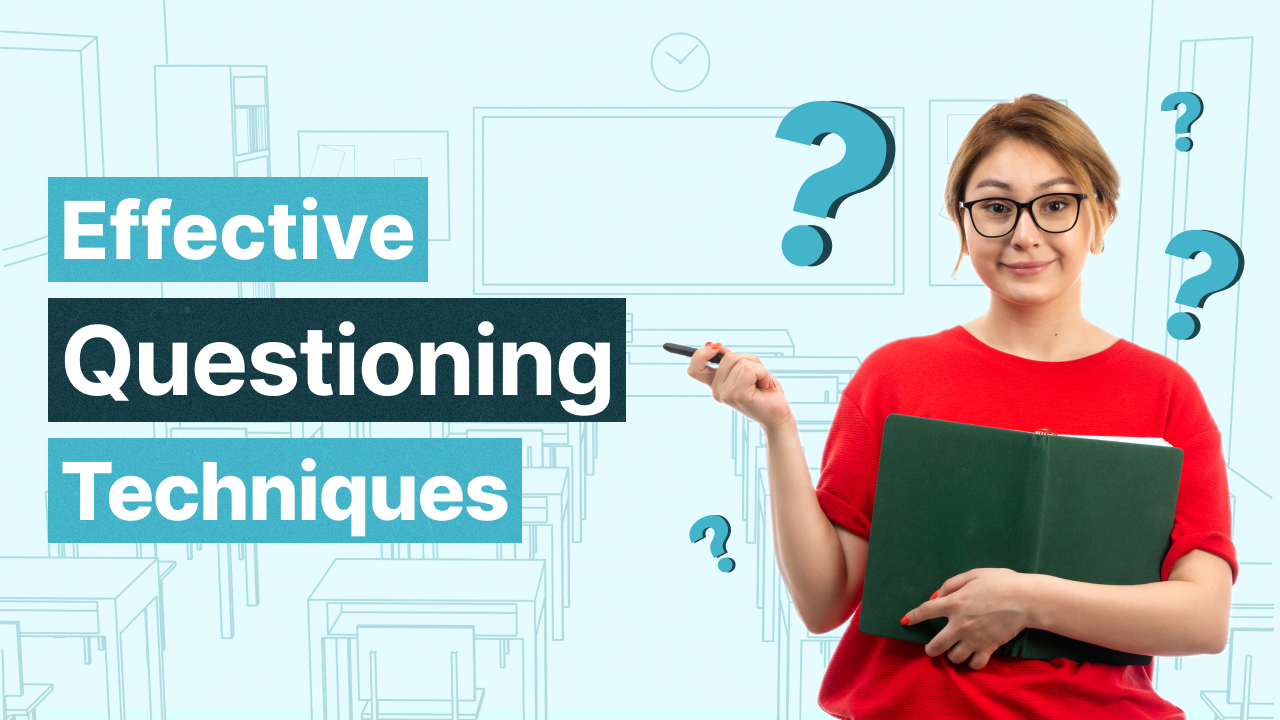
Effective questioning techniques are essential for active listening and facilitating meaningful conversations. Well-crafted questions can elicit valuable information, encourage open dialogue, and promote deeper understanding. Here are some key strategies for using effective questioning techniques:
Types of Questions
- Open-Ended Questions: These questions encourage detailed responses and promote conversation. They typically begin with words like “what,” “how,” “why,” and “tell me about.”
- Example: “How did you approach that problem?”
- Closed-Ended Questions: These questions usually require a simple “yes” or “no” answer or a brief response. They are useful for seeking specific information.
- Example: “Did you meet your project deadline?”
- Clarifying Questions: Use these to seek clarification or additional details when a response is unclear or vague.
- Example: “Can you elaborate on that point?”
- Reflective Questions: These questions mirror the speaker’s words and feelings to show empathy and encourage them to explore their thoughts further.
- Example: “It sounds like you’re feeling frustrated. Can you explain why?”
- Hypothetical Questions: These questions invite the speaker to consider hypothetical scenarios, which can help explore potential solutions or alternatives.
- Example: “What do you think would happen if we implemented that strategy?”
Strategies for Effective Questioning
- Listen Actively: Pay close attention to the speaker’s words and cues before formulating your questions. This ensures that your questions are relevant and follow the conversation’s flow.
- Avoid Leading Questions: Steer clear of questions that suggest a particular answer or bias the response. Keep questions neutral to encourage honest and unbiased answers.
- Example: Avoid asking, “Don’t you think this is the best solution?” and instead ask, “What are your thoughts on this solution?”
- Ask One Question at a Time: Keep your questions clear and concise. Avoid multi-part questions to prevent confusion.
- Example: Instead of asking, “What challenges did you face, and how did you overcome them?” ask, “What challenges did you face?”
- Use Follow-Up Questions: After the initial response, ask follow-up questions to dig deeper into the topic or explore related areas.
- Example: “You mentioned that you encountered resistance. Can you explain more about where that resistance came from?”
- Be Patient: Allow the speaker sufficient time to formulate their response. Avoid interrupting or rushing to the next question.
- Empathetic Inquiry: Show empathy and understanding in your questions to create a supportive and non-judgmental environment.
- Avoid Assumptions: Don’t assume you know the answer before asking the question. Approach each question with curiosity and a genuine desire to learn.
Tailoring Questions to the Context
- The type of question you ask should be tailored to the context of the conversation. Open-ended questions are often used to initiate discussion and encourage sharing, while closed-ended questions can be used for fact-checking or confirmation.
Practicing Effective Questioning
- Improve your questioning skills through practice and feedback. Review your interactions and assess the effectiveness of your questions in eliciting meaningful responses.
Effective questioning is a fundamental skill in active listening and effective communication. By using the appropriate types of questions and applying these strategies, you can engage in more insightful conversations, gain a deeper understanding of others’ perspectives, and promote constructive dialogue in both professional and personal settings.